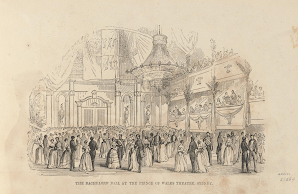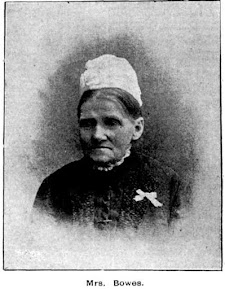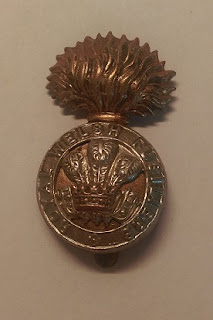A roller coaster life with tragedies and triumphs
Today's blog is a follow up
to the one I wrote about Jane Catherine Tost, taxidermist, way back in 2022.
(If you wish to acquaint yourself with that blog before reading this follow up, please click onto the name tag of Jane Catherine Tost at the end of this blog).
In that blog I mentioned
that her Jane's son Charles Goutliffe Jnr and son-in-law, James Coates were killed
fighting a fire at the Prince of Wales Theatre in 1872 and that is the focus of
today's blog.
PRINCE OF WALES THEATRE FIRE
From newspaper reports at
the time, it would appear that in the early hours of Saturday the 6th of
January 1872, the Prince of Wales Theatre in Castlereagh Street Sydney near
King Street caught fire rapidly. A full house the previous night had seen "The
House that Jack Built" and all had left the theatre. The alarm was raised
about 3.30am but firemen were virtually helpless against the fire's ferocity
which was believed to have started in the property room were chemicals used for
stage effects were stored.
As reported " within a
short space of time the whole top of the theatre fell in with a loud
crash". Within two hours "all ignitable parts of the building were
consumed or lay in one incandescent mess". The fire destroyed a baker's
shop and mill, oyster shop and ice cream parlour, several houses and caused
severe damage to nearby hotels.
A Police Officer witness stated at the inquest that he had noticed a young man - later known to him as
Charles Tost - assisting to extinguish the flames who he had observed earlier
assisting to douse flames in the nearby premises known as Fitzgeralds. In the
confusion surrounding the emergency, he stated he heard a shout then observed
the south wall of the Theatre fall towards King Street, crushing four small
houses and part of one of the fire engines, knocking down some men with the
debris of the houses falling and covering them with bricks, mortar and timber.
Three men were observed to
be covered in rubble and one of the first men dug out was James Coates, Ada
(nee Tost's) husband. His right ankle was broken, and he was bleeding from the
nose, ears and mouth and totally insensible, injuries sustained from the falling
wall rather than fighting the fire itself. James was to die a few days later on
the 9th of January as was Henry Vaughan, another man caught in the crush. Both
men were listed as firemen.
Charles Tost, a civilian,
was found in a crouching position, inaudible and bleeding from the head and
ear. He was conveyed to hospital and given some brandy and had hot water
applications made to his wounds as superficially they did not look very serious.
Tost remained "inaudible" until Wednesday the 17th of January, showed
signs of consciousness on Thursday but relapsed on Friday and died on Saturday
the 20 January 1872.
The post-mortem found that
he had fluid on the brain and severe injuries to the base of the skull. The
Jury at the inquest found that the cause of death was from a fracture to the
skull and inflammation of the brain caused by the fall of the southern wall of
the Prince of Wales Theatre.
The funeral for both men
must have been traumatic for the Tost women. The funeral for Charles Tost, the
former watchmaker, at Rookwood was attended by the Dean of Sydney and had a
large contingent of firemen in full uniform to pay their respects. Mrs. Jane
Tost was reported as so taken with grief and shock that she was too ill to
attend her son’s funeral.
Charles is buried in Section
A of the old Anglican area of Rookwood. His mother, Jane, was buried with him
when she died in 1889 although not acknowledged on the headstone.
James Coates was buried with
his family in the Wesleyan section of the Devonshire Street Cemetery and
relocated to La Perouse Cemetery (I have found his actual grave site is almost
impossible to locate).
Henry Vaughan is buried in
the Old Ground area of the Independant section of Rookwood cemetery.
Life for Ada Coates (nee
Tost) proved to be a roller coaster. Money received from a benefit fund allowed
her and her mother to open a Taxidermists shop in William Street which catered
for the growing interest in Victorian times of this "art". With two
small children to feed she needed to be employed.
Ada remarried in 1878 to
Henry Stewart Bonaventure Rohu, a Scottish-born upholsterer and curio collector
and the firm became 'Tost & Rohu'. They went on to have seven children. The
business grew, selling furs, stuffed animals and Aboriginal and Islander
artefacts. Henry deserted Ada in 1890 and she petitioned for divorce in
November of that year. Henry moved to New Guinea and spent some years there
pearl fishing, exploring and hunting specimens for the British Museum. Whilst
he was in New Guinea, he became marooned for over a year on a sandbank and survived.
He married Charity Pitman in 1901 and then moved to England, setting up as a
Naturalist in Bournemouth soon after. He died there in 1921.
Ada meanwhile battled on as
a single mother selling her taxidermy artefacts to the Australian Museum and
carrying on her business as before. Ada died in 1928 and is buried in a separate grave in Rookwood.
What a roller coaster of a
life the Tost family had. One of highs with forward strides in the burgeoning
taxidermy business but with incredible lows with the tragic deaths of son and
husband, followed by more tragedy.
I have utilised a number of
sources for this blog, and they include ancestry.com; Australian Royalty;
various google sources such as Wikipedia, Trove with its archive of newspapers and
Find a Grave.
If you have any further
information to add to this blog, please feel free to comment below or at the
facebook group page found under
rookwoodcemeterydiscoveries
or simply send me a person
message at
lorainepunch@gmail.com








Comments
Post a Comment